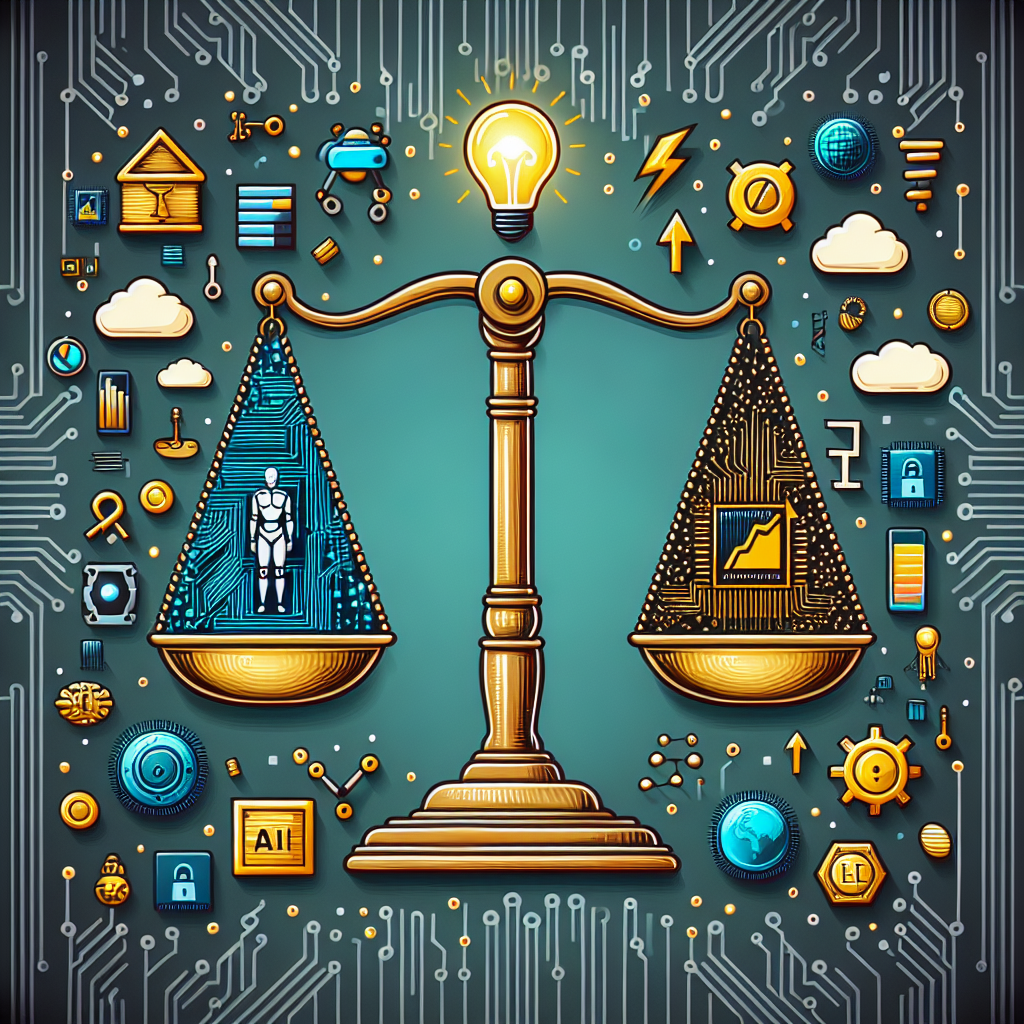The Promises and Perils of AGI: Experts Weigh in on the Future of Artificial Intelligence
Artificial General Intelligence (AGI) is a term that refers to machines that possess the ability to perform any intellectual task that a human can. This includes reasoning, problem-solving, and learning from experience. While we have made significant advancements in the field of artificial intelligence (AI) in recent years, AGI remains a hypothetical concept that has the potential to revolutionize the way we live and work.
In this article, we will explore the promises and perils of AGI, as well as the opinions of experts in the field on its potential impact on society.
Promises of AGI
One of the most promising aspects of AGI is its potential to improve efficiency and productivity in various industries. Machines with human-level intelligence could revolutionize fields such as healthcare, finance, and transportation by performing complex tasks with speed and accuracy that humans cannot match. This could lead to significant cost savings and increased competitiveness for businesses.
AGI also has the potential to enhance our quality of life by automating mundane tasks and freeing up time for more meaningful activities. For example, self-driving cars powered by AGI could reduce traffic accidents and congestion, while virtual assistants could help us manage our schedules and communicate more effectively.
Another promise of AGI is its potential to advance scientific research and innovation. Machines with human-level intelligence could help us solve complex problems in fields such as medicine, climate science, and space exploration by processing vast amounts of data and generating insights that humans might overlook.
Perils of AGI
Despite its promises, AGI also poses significant risks and challenges that must be addressed. One of the biggest concerns is the potential for AGI to outperform humans in all intellectual tasks, leading to widespread unemployment and social unrest. As machines become increasingly capable of performing tasks that were once reserved for humans, the job market could undergo significant disruption, with millions of workers facing the prospect of obsolescence.
AGI also raises ethical concerns related to privacy, security, and control. Machines with human-level intelligence could pose a threat to individual privacy by collecting and analyzing vast amounts of personal data without consent. There is also the risk of AGI being used for malicious purposes, such as hacking into systems or manipulating information to influence public opinion.
Another peril of AGI is the potential for unintended consequences. Machines with human-level intelligence could make decisions that have far-reaching implications for society, without fully understanding the consequences of their actions. This could lead to unforeseen ethical dilemmas and conflicts that are difficult to resolve.
Expert Opinions on AGI
To gain a better understanding of the promises and perils of AGI, we reached out to experts in the field for their insights on the future of artificial intelligence.
Dr. Stuart Russell, a professor of computer science at the University of California, Berkeley, believes that AGI has the potential to transform society in profound ways. He envisions a future where machines with human-level intelligence work alongside humans to solve complex problems and enhance our quality of life. However, Dr. Russell also acknowledges the risks of AGI, including the potential for unintended consequences and the need for careful regulation and oversight.
Dr. Nick Bostrom, a philosopher and director of the Future of Humanity Institute at the University of Oxford, shares Dr. Russell’s concerns about the perils of AGI. He argues that the development of AGI poses existential risks to humanity, as machines with human-level intelligence could surpass human capabilities and lead to unforeseen consequences. Dr. Bostrom advocates for a cautious approach to the development of AGI, with a focus on ensuring that machines align with human values and goals.
FAQs about AGI
Q: What is the difference between AGI and narrow AI?
A: AGI refers to machines that possess the ability to perform any intellectual task that a human can, while narrow AI is designed to perform specific tasks within a limited domain. AGI has the potential to outperform humans in all intellectual tasks, while narrow AI is limited to performing tasks for which it was programmed.
Q: How close are we to achieving AGI?
A: The development of AGI remains a hypothetical concept, with experts disagreeing on the timeline for its realization. Some believe that AGI could be achieved within the next few decades, while others argue that it is still a long way off. The pace of progress in AI research and the availability of computational resources will play a key role in determining when AGI becomes a reality.
Q: What are the ethical implications of AGI?
A: AGI raises ethical concerns related to privacy, security, and control. Machines with human-level intelligence could pose a threat to individual privacy by collecting and analyzing vast amounts of personal data without consent. There is also the risk of AGI being used for malicious purposes, such as hacking into systems or manipulating information to influence public opinion.
In conclusion, the promises and perils of AGI are intertwined, with the potential for transformative benefits and significant risks. As we move closer to achieving machines with human-level intelligence, it is essential to consider the ethical implications and societal impact of AGI. By engaging in thoughtful dialogue and regulation, we can harness the power of AGI to improve our lives while mitigating the risks that it poses to humanity.

